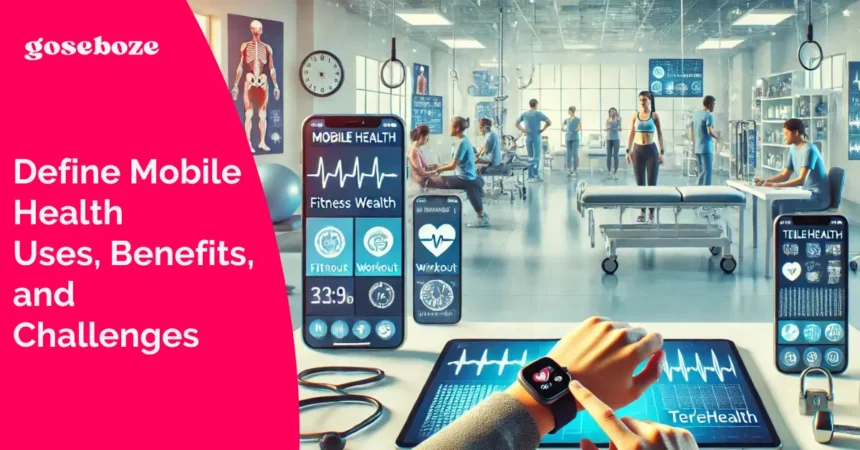MHealth applications are becoming increasingly popular as healthcare providers seek to provide more accessible, efficient, and patient-centered solutions. Available mobile health solutions include fitness wearables, smartphone workout apps, and telehealth software built to deliver healthcare services.
Studies show that the latest edition of mHealth solutions has the potential to change how people access and manage their health. The field is still new, and most applications and fitness devices aren’t very accurate.
Below are some key applications of mobile health technology.
Wellness Monitoring and Tracking
People are becoming more concerned about how their lifestyle can affect their health and overall wellness. Many people are buying fitness trackers and watches to help track their physical activities. More people are also using workout apps to help structure their gym routines.
According to this article from Empeek, mHealth technologies can help you track your progress and offer tips on areas that need improvement. You also get daily notifications to complete your workout routine, drink water, and track your calories if you are on intermittent fasting.
Telehealth
Very soon, you won’t have to go to a doctor’s office for a consultation. Telehealth apps are one of the most popular uses of mobile health, which became popular during the COVID-19 pandemic. These apps allow doctors and patients to communicate remotely using video conferencing.
It is a cost-effective solution as it reduces the number of trips to the doctor’s office. Patients with chronic illnesses can also get help from their homes, reducing the risk of exposure to other ailments while in public.
Read Also: How Does a Pizza Vending Machine Work?
Mental Health Support
Mental health challenges are a crucial matter in today’s society. However, the lack of support and available cars has made it hard for patients to find quality help. There are also mHealth apps focused on providing mental health support.
These apps help people learn how to perform cognitive-behavioral therapy and breathing exercises. Users can talk to a mental health expert via the app for professional help. These apps are helpful for people who may be hesitant to seek help physically.
Despite the benefits, mobile healthcare technology has its challenges. Let’s take a look at some of the most common challenges related to mobile health.
Privacy and Security Concerns
This is the biggest issue faced by most mHealth products on the market. Patient information is in high demand on the dark web. Some developers have also been accused of stealing user information and selling it to marketing companies.
Cost
The latest fitness wearables are more accurate but cost more, making mobile health tech unaffordable for most people. Most fitness apps also have in-app purchases, which limits the app’s features to only the basics. Most people end up deleting the apps since they cannot track their progress or get tips to help them improve when they hit a plateau.
What Does the Future Hold?
MHealth’s future is very promising. Newer technologies like machine learning and artificial intelligence are taking center stage. These will help develop more personalized solutions capable of offering better health solutions and improving disease prevention and management.
There is also hope that the latest technologies will reduce production costs and boost affordability.








